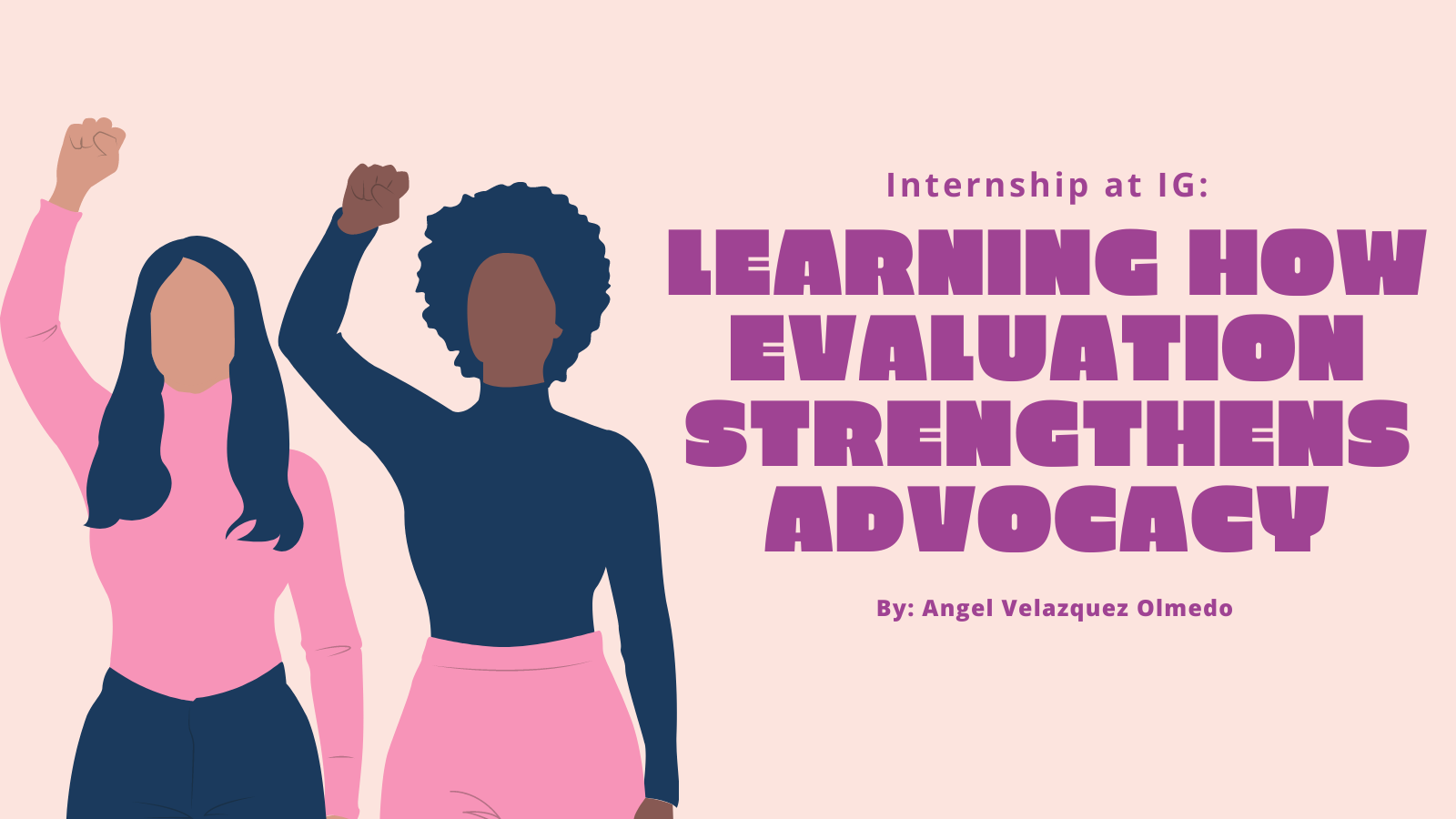
Hi—I’m Angel Velazquez Olmedo, and I’ve been an intern at The Improve Group this summer! As I wrap up my time at IG, I just wanted to share a little bit about what I’ve learned through my work. I’m particularly interested in immigration advocacy as a potential career path, and I took this chance to learn more about how evaluation can be a tool to advocate for communities.
Actually, it really clicked for me how important evaluation is to successful programs during a recent event I attended as part of a fellowship program. We learned about an initiative to increase community safety and access to good jobs in Minneapolis by training community safety specialists through an extensive apprenticeship program. The speaker mentioned that evaluation and community engagement are embedded into the program to ensure it has a solid foundation long-term. As the speaker put it, “evaluation equals sustainability.”
That idea stuck with me and deepened as I learned more about the field through my work at IG: It’s critical not only to make goals, but to ensure the work you’re doing is actually impacting communities in the ways that are important to them. In addition to working on several evaluation projects at IG, I also had the chance to do a research project. Thinking back to that event and my interest in immigration advocacy, I chose to learn more about advocacy evaluation, which is the evaluation of progress or outcomes of advocacy, such as policy changes (check out this in-depth guide for more information).
I shared what I discovered with my colleagues during a recent presentation: Advocacy evaluation shares many similarities and methods with evaluation, but it’s also a little messier and more unpredictable. For example, in advocacy evaluation, you measure influence more than outcomes—and typically deal with opposition to specific causes. The timeframes are also likely to differ because advocacy evaluation is a long-term process that requires patience.
Through this work, I got a new perspective on what advocacy is and how evaluation can actually be a form of advocacy. Practically, I learned both about tools (surveys, interview analysis, etc.) and approaches (like listening to community members before designing a plan) that I know will be useful in my future work.
I also want to thank IG Chief Practice Officer Becky Stewart, in particular, for being a great resource and sharing your wisdom with me over this summer!
